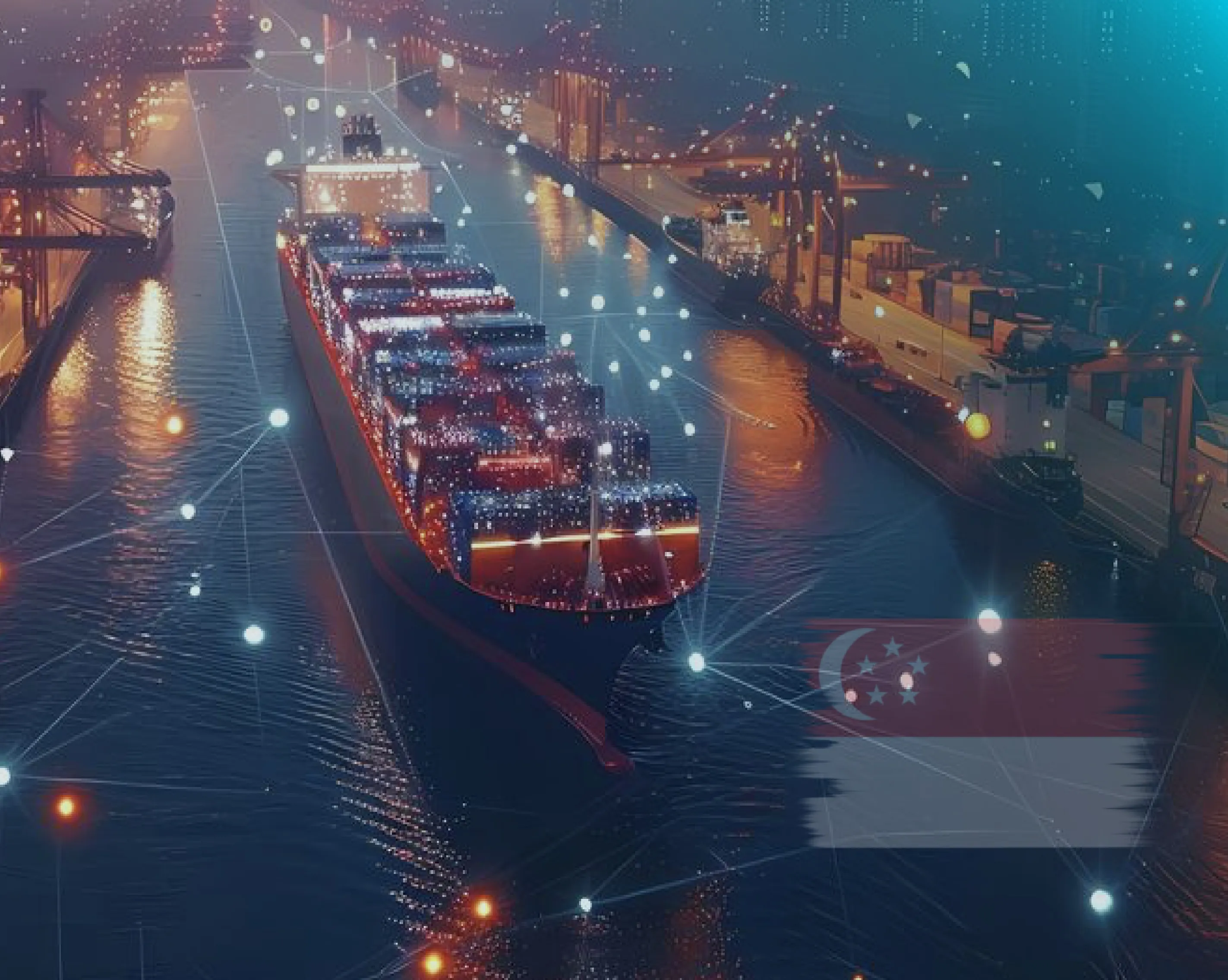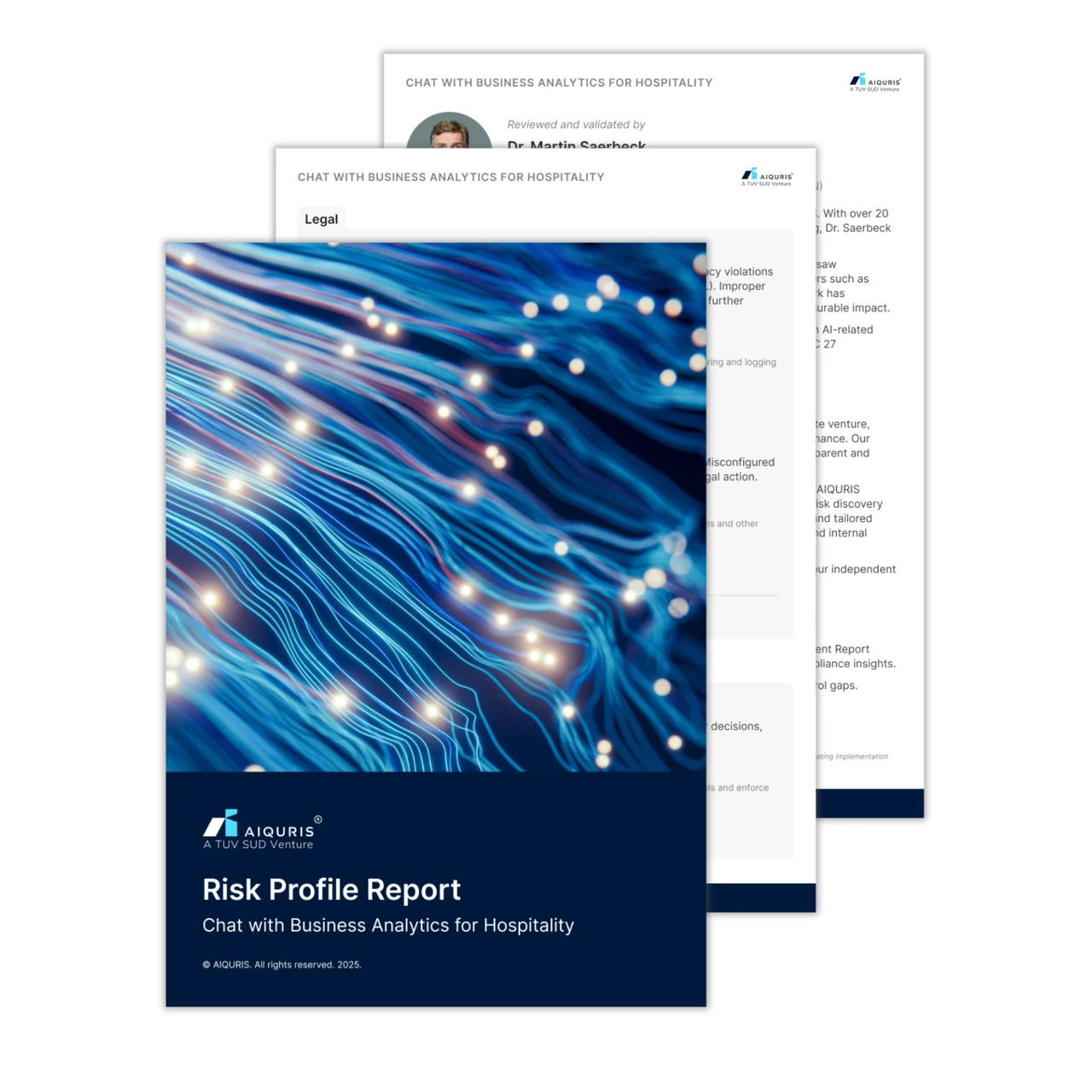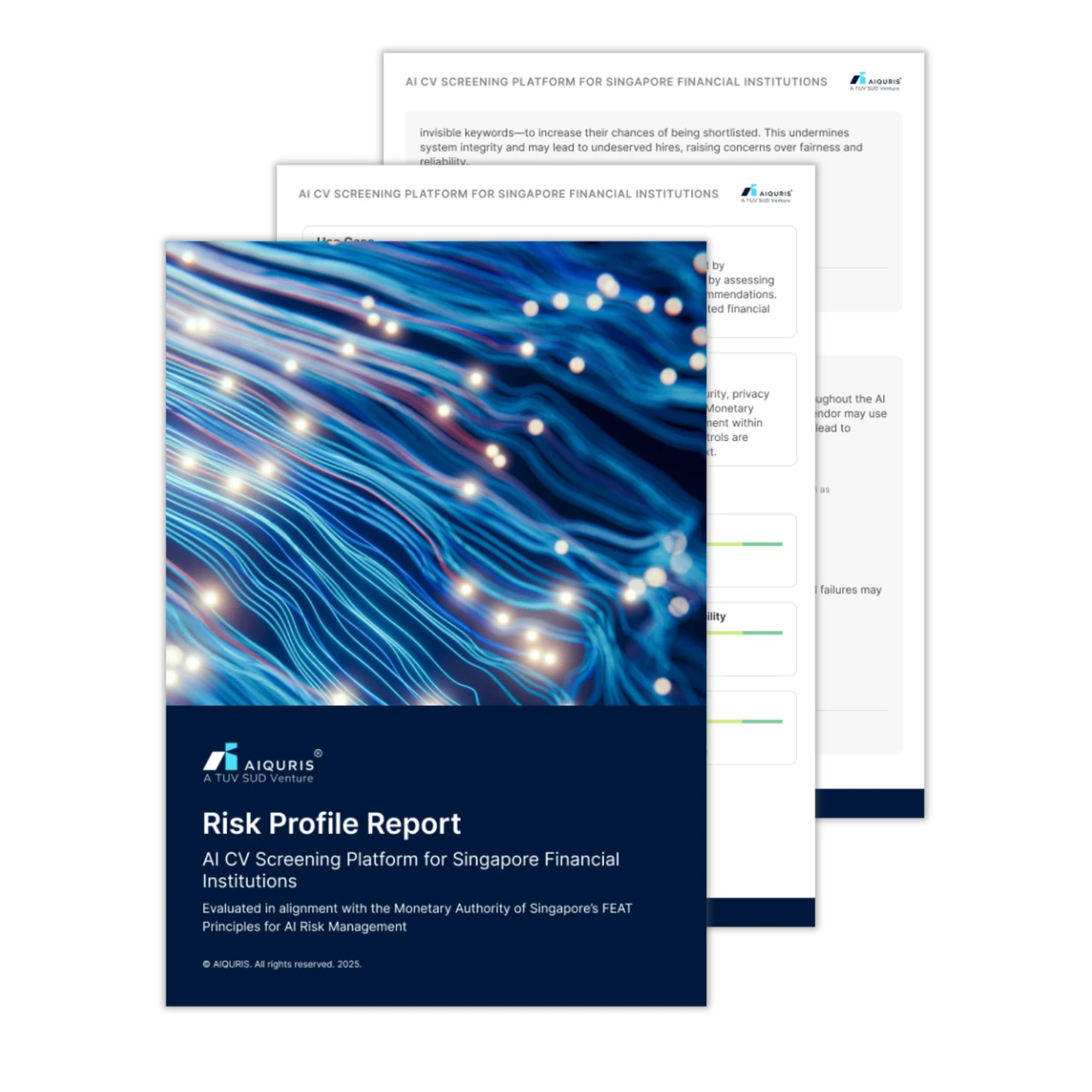As global trade surges, AI is transforming maritime operations, enhancing efficiency, safety, and sustainability. The AI in Maritime Transport sector is projected to reach USD 9.7 billion by 20331, driven by the need for smarter decision-making, enhanced safety, and reduced environmental impact. With its strategic location and world-class infrastructure, Singapore is leading this shift, integrating AI to optimise port operations and streamline logistics while setting a benchmark for the future of intelligent maritime logistics.
Applications of Artificial Intelligence in the Maritime Industry
- Predictive Maintenance with Machine Learning Models: Utilising machine learning algorithms and predictive maintenance systems forecast equipment failures before they occur. These implementations can reduce maintenance costs by up to 30%2, resulting in substantial cost savings and extended asset lifespans.
- Autonomous Navigation Systems: AI-driven systems are being developed to enable ships to navigate autonomously, reducing human error while optimising routes. These systems analyse multiple data sources, including weather patterns, ocean currents, and traffic data, to recommend the safest and most fuel-efficient pathways, thereby improving overall operational efficiency. Notably, trials have demonstrated that such autonomous navigation systems can achieve a reduction in fuel consumption of up to 15% during operations3.
- Cargo Optimisation Algorithms: Companies like Cargotec leverage AI-enhanced logistics platforms that automate loading and unloading processes4. By implementing AI solutions, these firms can improve turnaround times at ports, significantly boosting productivity and resource utilisation.
- Environmental Monitoring Tools: As part of its commitment to sustainability, Singapore uses AI to monitor emissions in real-time, helping operators comply with international regulations while actively working towards lowering their carbon footprints5.
Challenges in Implementing AI in Maritime
Despite the promising advancements, integrating AI into existing maritime frameworks presents challenges:
- High Implementation Costs: Smaller enterprises often find it difficult to absorb the initial investments required for AI technologies.
- Data Security Concerns: The increasing digitalisation of the sector raises concerns about safeguarding sensitive information against cyber threats. A robust cybersecurity framework must be established to protect system integrity.
- Skill Shortages: There exists a notable gap in AI expertise within the maritime workforce, necessitating focused training programmes to build essential skills among employees.
To address concerns around cybersecurity and AI governance, AIQURIS integrates real-time AI risk profiling and automated compliance tracking, ensuring robust security frameworks for maritime AI deployments.
Singapore’s Global Leadership in Maritime AI
On 24 March 2025, the Maritime and Port Authority of Singapore (MPA), in partnership with the Government Technology Agency of Singapore (GovTech), launched Singapore’s first Maritime Digital Twin—a dynamic virtual model of the Port of Singapore—to optimise port operations, improve energy efficiency, and reduce emissions6. The Maritime Digital Twin, a virtual model replicating port operations tests designs and strategies without physical implementation, improving decision-making and efficiency. Digital twins provide an invaluable asset for predicting outcomes and testing various scenarios without disrupting actual port operations. The Maritime and Port Authority of Singapore (MPA), in partnership with the Government Technology Agency of Singapore (GovTech), has developed Singapore’s first Maritime Digital Twin to optimise port operations, improve energy efficiency, and reduce emissions7.
Singapore also fosters AI innovation through PIER71, an AI solution developed through this programme, supporting startups in developing AI-driven maritime solutions8. With a strong regulatory framework and collaborative ecosystem, Singapore accelerates AI adoption, setting a benchmark for smart maritime operations.
Future of AI in Maritime Operations
The maritime industry is on the cusp of a technological revolution, with AI poised to play a pivotal role in shaping its future. Key developments include:
Autonomous Vessels: Companies like Yara International and Kongsberg have developed the Yara Birkeland, the world's first fully electric and autonomous container vessel with zero emissions, demonstrating the potential of AI in maritime autonomy9.
Predictive Maintenance: AI-driven analytics process vast sensor data to predict equipment failures before they occur, minimising downtime and extending the lifespan of critical machinery.
Environmental Sustainability: AI technologies are instrumental in reducing carbon emissions by optimising sea navigation, leading to fewer maneuvers and route deviations. These technologies are increasingly crucial to meet stringent IMO emissions regulations like DCS and MRV. A study by Orca AI indicates that the global commercial shipping industry could reduce its carbon emissions by 47 million tonnes annually through the deployment of artificial intelligence for sea navigation10.
As AI continues to evolve, its integration into maritime operations promises a future of increased efficiency, safety, and environmental stewardship.
Integrating AIQURIS for Seamless AI Deployment
For organisations venturing into AI, AIQURIS offers an invaluable solution designed to help businesses scale AI initiatives with confidence. AIQURIS provides a structured, six-pillar risk management framework, covering compliance, security, governance, bias mitigation, operational resilience, and ethical AI to help maritime organisations deploy AI responsibly.
By evaluating AI models and vendors against compliance, risk, and governance requirements, AIQURIS identifies vulnerabilities and ensures regulatory adherence. Its real-time risk assessments safeguard AI-driven systems like predictive maintenance and autonomous navigation, optimising efficiency without compromising security or ethics.
Conclusion
In conclusion, the integration of AI in maritime operations signifies a transformative leap forward for Singapore's shipping industry. By embracing cutting-edge technologies, stakeholders can enhance operational efficiencies, mitigate environmental impacts, and ultimately reshape the future of maritime trade. With robust solutions like AIQURIS facilitating this transition, the stage is set for Singapore to solidify its reputation as a leader in maritime innovation. To explore how AIQURIS can help with AI adoption, talk to an expert today.






